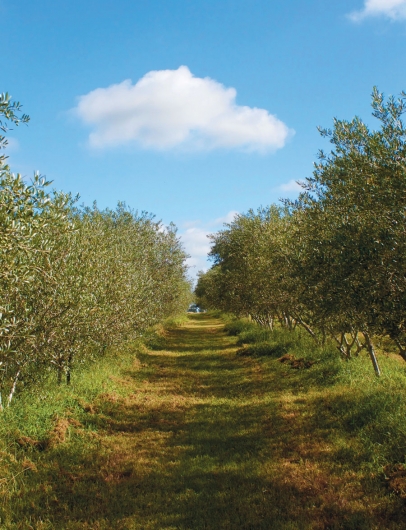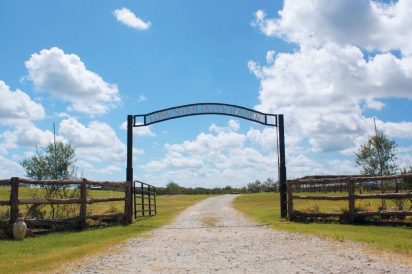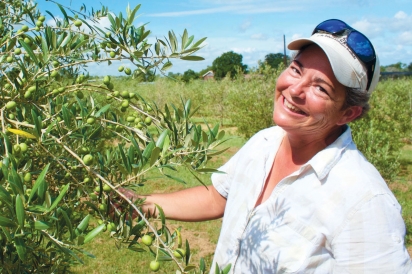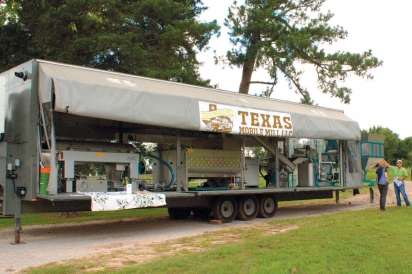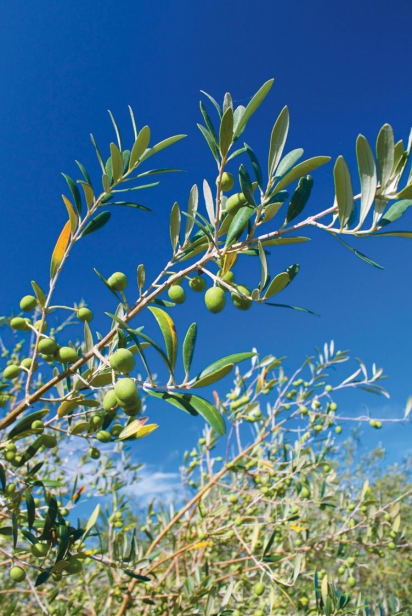Mobile Olive Mill? Lone Star Olive Ranch Brings it to Olive Growers
Mobile mill a game-changer for Texas olive industry
In 2009, Christine McCabe and Cathy Bernell founded Lone Star Olive Ranch after trying their hand at raising cattle. When they started naming each cow, they realized they had chosen the wrong profession. So, after a lot of research, they switched to olives, excited to be apart of a fairly new industry in Texas.
Olive trees have been a part of the Texas landscape since 1930, but it wasn’t until the late 20th century that olive oil became a commercial product. While Texas only produces a small percentage of America’s extra-virgin olive oil, it is a growing industry: Established orchards are expanding and new orchards are emerging.
Lone Star Olive Ranch is located in Madisonville, a small town about 90 miles northwest of Houston. Currently, it has 10,000 trees spread out over 40 acres. Almost half of the trees are Arbequina, a Spanish cultivar popular in Texas olive oil. Lone Star is also growing different olive cultivars from France, Greece, Italy, Tunisia, Spain and—considered the only American cultivar—Mission olives. Each type offers its own unique flavor and blending is key: “We don’t want our olive oil to taste like everybody else’s. We want our own flavoring,” said Bernell.
Several other factors contribute to the taste of olive oil, including the time between harvest and milling. Basically, the quicker an olive can be made into oil, the better. This is a challenge to small orchards under 50 acres, like Lone Star Olive Ranch, which until recently relied on others to mill their olives for them.
“Milling immediately after harvest is imperative to the quality of your oil. We had trouble. The process of harvesting and then milling olives is very labor intensive—to harvest all day then drive three hours to the mill, then drive three hours back, get another batch and drive back, and so on. It’s perpetual motion,” Bernell said.
Exhausted after last year’s harvest, McCabe and Bernell knew something had to change. They considered installing a mill at their orchard, but then a concept from California caught their attention: a mobile olive mill. “If we built just another brick-and-mortar mill, other growers wouldn’t receive any benefits; they’d still have to travel to our mill. We wouldn’t solve any problems—we’d only serve ourselves. So, with a mobile mill, we felt like this was an excellent piece of infrastructure to bring to the Texas olive growing community,” she said.
In 2015, the Texas Mobile Olive Mill was founded to provide olive milling on the go. A separate business from Lone Star Olive Ranch, the mobile mill is a massive 45-foot trailer that houses machinery that can crush two tons of olives per hour.
This is the inaugural season for the Texas Mobile Olive Mill and McCabe expects to be very busy—potentially receiving her first batch of olives as early as mid-August and her last batch as late as early November.
Basically, the milling process takes olives through several processes that cleans, pulverizes and then blends them into a paste. Once at the paste stage, McCabe constantly checks it for what she describes as a “nice sheen on the top,” which is the beginning of the oil separating from the olive skins, pits and water.
Next, excess water and olive particles are removed from the oil, a process known as “clarification.” It can be bottled as oleo nuevo (new oil), but must be consumed soon. To extend the oil’s shelf life, it can be “racked,” which allows the oil to further clarify in a temperature-controlled environment: Placed in a food-grade container, the oil is pumped to the top, while the water and sediment stay at the bottom. This whole process meets the criteria for extra-virgin olive oil: To be qualified as “extra virgin” it must be pressed directly from the fruit of the olive tree without any treatments or conditions (including maintaining a strict temperature range) that can cause alternations and without the use of chemicals.
Over the years, McCabe has milled over 250 tons of olives and has received extensive sensory training, which allows her to discern the complex flavors and characteristics of olive varietals, and distinguish high- and low-quality oil. Even though she has become a skilled miller—one able to discern the complex flavors and characteristics of olive varietals—she plans to continue her training in Italy.
There are several ways to take advantage of the opportunity afforded by the mobile mill: You can bring your olives to McCabe in Madisonville and receive the oil from the olives that you grew. You can also sell your olives to McCabe, who will mix them with other purchased olives and sell the oil under the label 79 Protons. Or, the mill can travel to your ranch. Even if you have a mill at your ranch already, you can have the mobile mill act as a second mill—speeding up the process.
In cooperation with the newly formed Texas Association of Olive Oil (TXAOO) and the Texas Department of Agriculture (TDA), McCabe plans to coordinate “community mill days” as festival events that will be held in towns such as Brenham/Burton, Devers and Moulton, which are surrounded by small olive ranches. Here, multiple ranchers can bring their olives to be milled, while enjoying food vendors, entertainment and family-friendly events.
“I honestly feel like the mobile mill is a game changer for the small olive growers in Texas—those under-50-acre ranches. I can crush 20 tons in a day. It’s a long day, but I can do it,” said McCabe.
Back at the Lone Star Olive Ranch, the sounds of hammers and drills often overtake the normal peace and quiet, as an old Baptist church is being restored and will become Lone Star’s store (which they hope to open in the fall) where the public can come to buy their olive oil and purchase other locally made products.
In addition, McCabe and Bernell stay busy managing, installing and consulting, including consulting at a pilot orchard—about 400 olive trees—at Gibbs Ranch at Sam Houston State University in Huntsville. After seven years of trial and error, they feel like they’ve learned a thing or two about olives and welcome new growers. But, they have a few suggestions.
“Research, research, research! This is such a young, emerging industry that the importance and significance of due diligence cannot be overstated. Also, do not be afraid of doing something different or that hasn’t been tried before, whether that be olive tree varietals, planting layouts or marketing concepts,” Bernell said.
Bernell and McCabe certainly practice what they preach. With their out-of-the-box marketing ideas and the addition of the Mobile Olive Mill, the Lone Star Olive Ranch is trying different ideas to improve not only their own business, but also their community, and the Texas olive oil industry in general.
“More than anything, we really want to serve the community of Madisonville and help the community of olive growers—ease their struggles [of harvest and milling] a little bit,” McCabe said.
> For more info lonestaroliveranch.com. 856 FM 2289, Madisonville.


